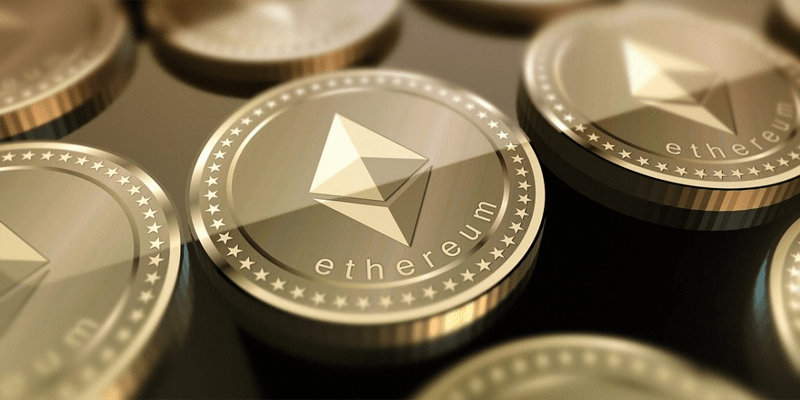Before knowing what Ethereum is, let us know about the little technology in the cryptocurrency world and about Blockchain. In this Ethereum guide, I will be tried a little to understand what is ETH. How does it work? And how it is impacting our society. Do we also learn what is the core properties of Ethereum? So the question is What is Ethereum
Bitcoin is a cryptocurrency, with works on Blockchain-based. Among other several hundred applications and currencies, Bitcoin is the only one, that uses Blockchain for the first time.
Relatively, building blockchain technology requires a lot of coding, cryptography, mathematics, and statistical knowledge as well as significant resources. But, now the time has changed, and at the same time developer are being provided with decentralized application-building tools, and it is making all this possible. What is Ethereum
Moreover, as we know all our data are stored on a personal computer or cloud storage. In this case, generally, your information will get a chance of loss and harm. Especially, hackers or government take unwelcome access to our information without our knowledge. Due to this access, when we stand steadily these hackers change all our important information.
So, what is Ethereum by the way:
Table of Contents
What is Ethereum?
Ethereum is an open-source, public, blockchain-based distributed computing platform and operating system featuring smart contracts. Via transaction-based state transitions, it supports a modified version of Nakamoto.
Ethereum platform generates a blockchain of Ether, which also is a cryptocurrency. Ether is transferable between various accounts as well as users. Similarly, it provides the Ethereum Virtual Machine (EVM) which monitors scripts that are using the public node’s international network. What is Ethereum if you don’t know then read this article. I hope you will be helpful.
It is an open-source software platform where a developer is able to create and deploy decentralized applications. For example, a developer can build different financial applications. A smart contract is one of them. To understand ETH anyone can compare with programmable Bitcoin.
Here programmers can use the underlying blockchain to build multi-utility assets where no need for any middleman. ETH started in 2015 initial idea from Vitalik Buterin.
Ethereum vs. Bitcoin
While Bitcoin and Ethereum are both cryptocurrencies, they have fundamental differences. Bitcoin is primarily a peer-to-peer digital currency, whereas Ethereum provides a platform for developers to create decentralized applications. Additionally, Ethereum uses a more advanced scripting language, allowing for the execution of complex smart contracts. What is Ethereum?
Who Behind The ETH
In 2018 apparently, the name Satoshi Nakamoto invented the world’s popular digital currency Bitcoin. After 4 years letter nine years old Vitalik Buterin first show interested to transform the internet entirely. He wanted to build, such as decentralized application where a developer able to create immutable open-source applications. At the currency time, there are 13 member contributions to Ethereum those are below. What is Ethereum?
Vitalik Buterin

Mihai Alisie

Vlad Zamfir

Ayako Miyaguchi

Zach Lebeau

Justin Drake

Jeffrey Wylcke

Is it a cryptocurrency?
Absolutely not. Ethereum is not a cryptocurrency. It is just a software platform as well as an operating system to act as a decentralized internet. This operating system needs a currency to pay. Hence, ‘Ether’ comes to play that role. What is Ethereum and how does it work?
Ether is a digital currency that is transferable between accounts, it also acts as ‘fuel’ for the users, who want to change in the apps. Therefore, Ether is a digital currency as well as ‘fuel’. Without Ether, you can make any change in the apps of its platform.
Smart Contract
The smart contract can facilitate by computer code, and it monitors the exchanges of money, property, content, shares, or value of anything and executes if specific conditions are met. Because smart contracts run the Blockchain, and it works as a self-operating computer program.
It resists the access of third-party interference, censorship, fraud, and downtime.
I thought those in the Bitcoin community weren’t approaching the problem in the right way. I thought they were going after individual applications. They were trying to kind of explicitly support each [use case] in a sort of Swiss Army knife protocol.” Vitalik Buterin, inventor of Ethereum
While all blockchain-based cryptocurrencies have the ability or access to process the code, Ethereum creates whatever necessary applications or operations they needed.
Unlike Blockchain, Ethereum not only processes the codes but, it allows developers to create the application as well as develop the system also. What is Ethereum
How Does Ethereum Work?
At its core, Ethereum operates on a decentralized network of computers, known as nodes, that collectively maintain the blockchain. These nodes store the entire transaction history and smart contracts, ensuring transparency and immutability. When a transaction or smart contract is executed, it is validated and added to the blockchain through a consensus mechanism called mining.
Ethereum Virtual Machine (EVM)
The Ethereum Virtual Machine (EVM) is a runtime environment that enables the execution of smart contracts. It is a decentralized computer capable of executing code across the entire network. The EVM ensures that the execution of smart contracts is consistent and secure, maintaining the integrity of the Ethereum ecosystem.
Demerits of Ethereum
Though the smart contracts make the network fault-proof, sometimes it is not safe at all. There is always an open way for human error. If anyone makes a mistake in coding, it opens doors for hackers to hack. So the only way to get resistance from this problem is to rewrite an underlying code. What is Ethereum
While Ethereum is a popular and widely used blockchain platform, it does have certain disadvantages or demerits. Some of the notable demerits of Ethereum include:
- Scalability Challenges: Ethereum faces scalability issues, particularly when it comes to processing a high number of transactions. The current design of the Ethereum network limits its transaction processing capacity, leading to congestion and increased transaction fees during peak periods.
- Gas Fees: Ethereum uses a concept called “gas” to determine transaction fees. Gas fees can be volatile and can increase significantly during periods of network congestion. This makes it expensive to perform even simple transactions or execute smart contracts on the Ethereum network.
- Energy Consumption: Ethereum, like other blockchain networks, relies on a proof-of-work consensus mechanism, which requires significant computational power and energy consumption. The environmental impact of Ethereum’s energy-intensive mining process has been a subject of concern, particularly in the context of increasing global awareness of sustainability.
- Upgrade Challenges: Upgrading the Ethereum network involves reaching a consensus among the network participants, which can be a complex and time-consuming process. The process of implementing upgrades and protocol changes has faced delays in the past, causing uncertainty and potential disruption for developers and users. What is Ethereum you have to know at first.
- User Experience: Interacting with the Ethereum network can be challenging for non-technical users. The complexity of managing cryptocurrency wallets, understanding gas fees, and interacting with smart contracts can create barriers to entry for individuals who are not well-versed in blockchain technology.
- Lack of Privacy: Ethereum’s blockchain is public and transparent, which means that all transactions and smart contract interactions are visible to anyone. While this transparency has its benefits, it also compromises user privacy and can lead to concerns regarding the confidentiality of sensitive information. What is Ethereum actually?
- Solidity Programming Language: Ethereum’s main programming language, Solidity, has a steep learning curve for developers who are not familiar with it. Writing secure smart contracts in Solidity requires specialized knowledge, and coding errors can lead to vulnerabilities and potential exploits. What is Ethereum


9 thoughts on “What is Ethereum?”